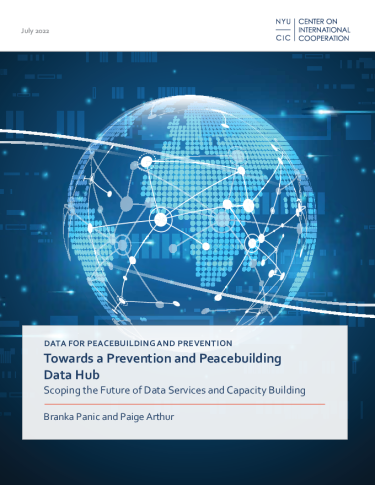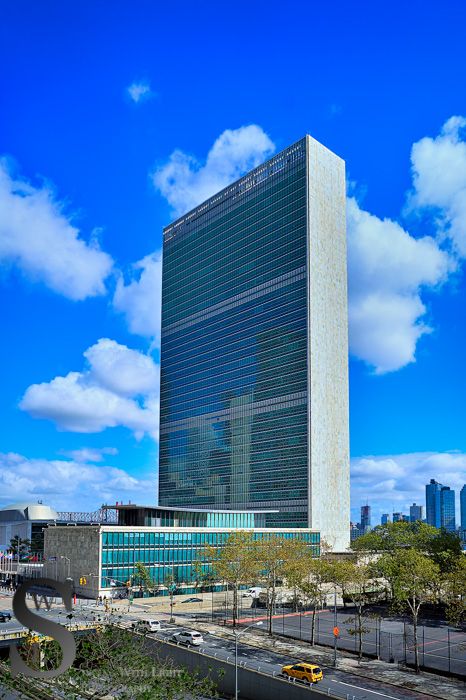The complex crises in our world—from rising instability linked to pandemic effects and climate change, to ongoing challenges of civil war, urban violence, violent extremism—require complex analysis and insights. Emerging technologies, data, and data science methods have been recognized as potential tools to help tackle some of these “wicked” problems across the humanitarian-development-peace nexus.
Artificial intelligence (AI) and machine learning (ML) potentially open a range of new opportunities for early warning and humanitarian preparedness, assessment and monitoring, service delivery, and operational and organizational efficiency. Advanced data analysis is the core of these efforts, and its success often depends on timely access, as well as the right quality and quantity of data.

Those wishing to develop data-driven insights, however, would benefit from consolidated access to relevant data sets, so that experts can be as creative and effective as possible about modeling and solutions. CIC’s Ecosystem Mapping Report, published in October 2020, identified a key gap around cross-sectoral cooperation and the lack of a central resource for data relevant to peacebuilding and prevention. At the time, we recommended a scoping of options for a data hub for prevention and peacebuilding that could consolidate relevant data and provide expert resources for field-level initiatives. This hub would have a potential to centralize information, foster innovation, build capacities for data-driven approaches, and enable partnerships, which would lead to more evidence-based practices and strategies.
A good model for a data-driven hub comes from the humanitarian sector: The Centre for Humanitarian Data in the Hague, managed by the UN OCHA, is a central resource for data services, data literacy, data responsibility, and predictive analytics. With the objective of learning from the Centre’s experiences and to envision the future of data-driven peacebuilding work, we facilitated a set of interactive workshops in December 2021 to crowdsource ideas, best practices, and opportunities for a more central hub to support data-driven approaches to prevention and peacebuilding.
This report summarizes those discussions and provides suggestions for future steps,
- identifying the growing needs for prevention and peacebuilding practitioners for better data services, including, e.g., a consolidated resource of relevant data sets, an entity to maintain the data and identify gaps, and a central resource for guidance on data protection and ethics
- describing how a hub could also build capacity of practitioners on, e.g., data literacy and the safe and effective use of emerging technologies
- suggesting a way forward, including options for establishing a new hub versus potentially enlarging an existing hub, such as The Centre for Humanitarian Data
Download the full report: Towards a Prevention and Peacebuilding Data Hub: Scoping the Future of Data Services and Capacity Building



